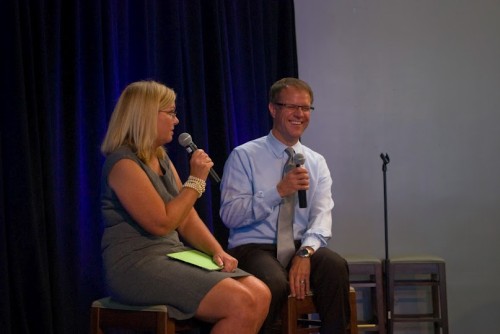At SOBCon Portland last year, I had the honor of interviewing Chris Erickson from the Heathman Hotel for one of our sessions. His hotel was in the news at the time because it had been used as the setting for the Fifty Shades of Grey books.
However, as we all discovered, the hotel already had a well-deserved reputation for being forward-thinking long before E.L. James decided to give them a different type of fame.
One thing Chris said during our interview was, ÂI consider myself a publisher.Â
There was definitely a moment of silence in the room as we all took that in. Imagining how far content marketing, social media, and digital outreach have come. A hotelier says heÂs a publisher.
Chris explained that he considers it part of his job to produce content (in many different forms) that will support the Heathman’s reputation and business strategy.
But doesnÂt it all go back a lot farther? The airlines have had in-flight magazines for quite a while now.
Chipotle is spending millions on well-executed mini-movies to sell carnitas burritos.
Is it time for every business owner and entrepreneur to think of themselves as a publisher? And how does this mindset shift your process, your work product?
According to Google, a publisher is “a person or company that prepares and issues books, journals, music, or other works for sale.”
Characteristics of Being a Publisher
- By definition, a publisher is not an amateur. He/she is presenting items for sale, not as a hobby.
- A publisher both “prepares” and “issues” the materials offered. He/she takes care that the items are error-free and ready to be issued to the world. By issuing, the publisher stands behind what he/she has prepared.
- Publishers take a risk when they present materials for sale. They invest in the content, not knowing for certain what the reward will be.
- Publishers must know their market. Is there room for this work? Is it the right time? Is this work creative and different enough to inspire others?
- A publisher makes hard decisions.
Do you consider yourself a publisher? Why or why not?
Don’t miss out on SOBCon Leverage 2014 yet? You’ll definitely want to be in the room.




